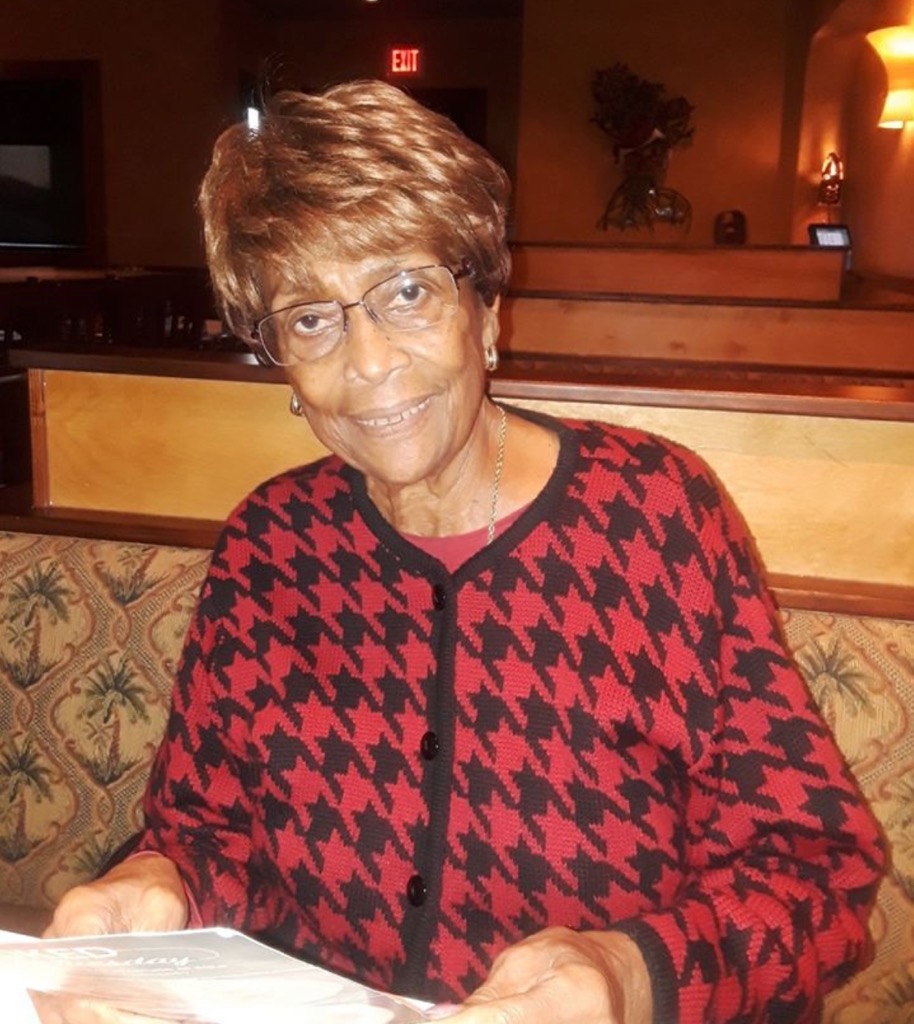We regret to share news of the passing of Gene Gary-Williams, grandmother of two Fairhaven School alumni and a great advocate for this school and Sudbury schooling over the years. Only by attending Dr. Gene’s recent funeral did we learn of her many trailblazing accomplishments and the remarkable impact she left on the world. Here is Howard University’s tribute. We mourn her loss, and we celebrate her today by revisiting her blog post from 2009.
Dr. Gene’s grandson, Xavier McClain, graduated from Fairhaven School in 2016 and is enlisted in the U.S. Army; her granddaughter, Milalai McClain, finished her schooling at home and works with children in South Carolina.

September 8th, 2009
I freely admit that my first encounter with Fairhaven came as a result of panic and prayer. My grandson, who was 8 years old at the time, had provided early and consistent indication that traditional schooling was not for him. Further, it appeared that if the adults in his life insisted on pursuing this line then we all were in for a rocky and rough path with uncertain and maybe disastrous results. He had been exposed to Montessori, traditional private schooling and home schooling – nothing worked in the manner to which most of us is accustomed. Making all of this the more frustrating was the observation that he is incredibly bright, intellectually gifted and possessing a phenomenal memory.
One day in the spring of 2005, I came across an article in The Washington Post that appeared above the fold, on the right hand side of the A section – hard to miss and strategically placed. Upon completing the article, I gave it to my daughter to read and stated that we needed to find Fairhaven, that very day!! We all got dressed for a visit – my daughter, my grandson, his twin sister, and I. We were greatly surprised and pleased to find that the school was about 15 minutes from our home!!! Upon being graciously received for our impromptu visit, taken on a tour and given a brief overview of the school, we were scheduled for an official visit. In the meantime, my grandson had declared, from this brief encounter, that this was a school that he liked; instant identification with the environment. The long and short is that after the official visit, he spent a week to get the feel of the place and my daughter enrolled him for the upcoming school year.
He will begin his fourth year in this academic year, 2009-2010. In the meantime his sister, who is a completely different learner, joined him last academic year and she has positively thrived – much to my surprise.
So, why am I surprised? To begin, I am a traditional academic, having taught in higher education environments and served as an administrator in these same areas. My orientation is in traditional schooling, where I excelled as a learner. As an academic I have an awareness of non-traditional modes of educating, but had never explored these before some cursory looks at Montessori. NOTE: When attempting to introduce other traditionalists to the Sudbury concept, I frequently refer to Sudbury as Montessori Very Lite!!
I was not sold on Sudbury in the beginning, I just knew that for the mental health of the family, it was at least a respite; maybe until we could figure something else out OR find some other, more familiar, form of educating that may answer my grandson’s needs.
At this juncture, I have a number of observations that have contributed to my continuing conversion and that have affirmed the importance of the Sudbury education model. First, listening to NPR WAMU 88.5 one day, after my grandson’s enrollment, I heard an interview with a young woman who had received a non-traditional education (not Sudbury, but home schooling to meet her needs) and who has written a book entitled Quirky Kids. She identified and interviewed young people who were educated apart from the traditional methods and wrote about their journeys. During the call-in, a parent from Florida described the hell that her family had encounter with her then 13 year old son and the finding of a school that assisted him in responding to his learning needs. As she talked, I realized that she was describing a Sudbury school and her story of her son’s development was a breakthrough moment of hope for me.
Since that time I have had moments of panic – most often when I discover that the kids do not know or understand some principle of Arithmetic/Math or some basic English language principle or how to spell a word that should be a part of their total vocabulary. The traditionalist in me takes over and I want to supplement Fairhaven with my version of ‘this is what you should know at this stage of intellectual development’. Admittedly there have been times when we have defied the advice of the staff and offered some worksheets, etc.; it only lasts for the moment and we are back to where we were. I have found that correcting English at the time is a positive way of teaching, as both children tend to remember the corrections. Math is another whole ball game and I await the awakening that I have been told will happen and the subsequent push to make up for lost time or just to learn basic facts in order to move forward to another learning experience.
I am amazed at what each of the children, especially ‘the boy’ with his remarkable memory, do know. How and where they have learned some things will probably always remain a mystery. Basically, they know what is of interest to them. This offers a personal platform for learning other things, a concept that I can oftentimes forget in the emotion of learning to accept and believe in Sudbury methodology.
Finally, when I discuss this with different people, I frequently hear that the person wishes s/he may have had this type of opportunity during their developmental phase as they still have a bad taste from traditional education or they feel this type of experience would have enhanced their later choices. And everyone seems to know someone who was/is ideal Sudbury method material.
As an academician I have a great desire to verify what I observe with an evidence base. I have read the studies conducted about Sudbury graduates and appreciate these. However, my grandchildren are of a generation/group of children who have spent little or no time in the traditional learning environment. I await the evidence that they, too, can develop and present a thesis paper indicating an acceptable level of mastery of the language, including writing and thinking. I look forward to Mark McCaig’s next book!!!!!
Conversion continues. I am closer today than I was three years ago and hopefully not as close as I will be in the coming years. Fairhaven is an ideal choice for the name of this school – a wonderful respite and personal developer – which, regrettably, does not happen often enough in the ‘regular’ education environment.


